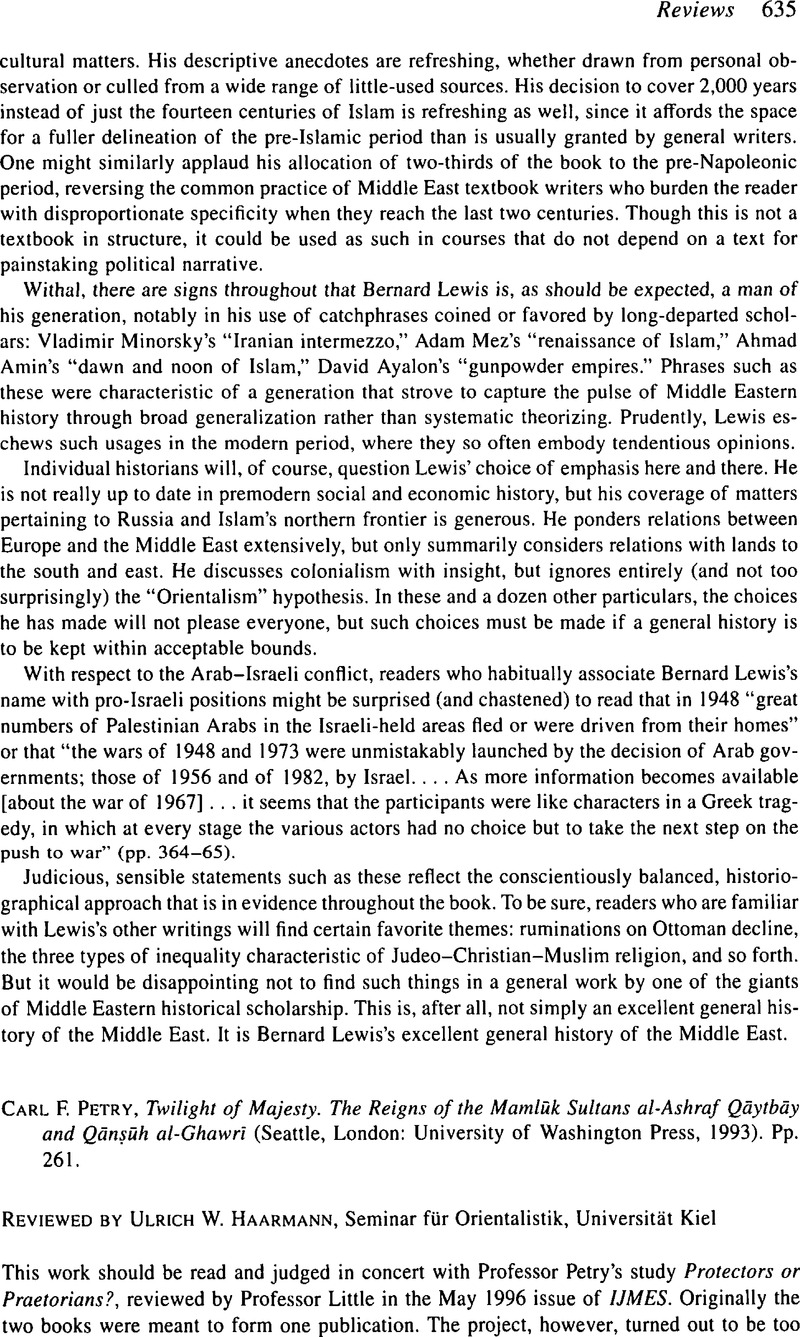No CrossRef data available.
Article contents
Carl F. Petry, Twilight of Majesty. The Reigns of the Mamlūk Sultans al-Ashraf Qāytbāy and Qānṣūh al-Ghawrī (Seattle, London: University of Washington Press, 1993). Pp. 261.
Published online by Cambridge University Press: 23 April 2009
Abstract

- Type
- Book Reviews
- Information
- Copyright
- Copyright © Cambridge University Press 1997
References
NOTES
1 The Tārīkh al-Malik al-Ashraf Qāytbāy quoted on pp. 12 and 239 is no longer of anonymous authorship. It was written by al-Qudsī, Abū Hāmid, the author of several historical works of the period.Google Scholar
2 Iyās's, IbnNuzhat al-umam fi'lʿajāʾib wa'l-ḥikam is not unpublished (cf. p. 50, n. 69, and p. 238),Google Scholar but has been available in print for a long time and has recently even been reprinted (in the Frankfurt facsimile series directed by Fuat Sezgin). The term “Cairo narrative style,” introduced by Ḥasan Ḥabashī as specific for the second half of the 15th century (cf. p. 7), is no longer appropriate. Too many sources of earlier times employ this amalgamation of the vernacular and of fuṣḥā Arabic.
3 I am thinking of a phrase such as (p. 29) taqaddimat alf instead of taqdimat alf, or a book title containing the sentence (pp. 128, n. 13, and 238) tashtamalu ʿalā dhikrin man waliya instead of tashtamilu ʿalā dhikri man waliya.
4 Some of the titles and names of authors of historical works should be corrected: cf. pp. 13 and 239, Mufākahat al-khillān instead of Mukāfaha al-khillān; pp. 8 and 59, Inbāʾ al-haṣr to replace Inbāʾ al-ḥaṣr (correct on p. 238). Read on pp. 12 and 237, al-Bāʿūnī instead of al-Bāʿūnī. In the field of names and of historical terminology, one may want to correct on p. 259 b Ṣūdūn into Sūdūn; on p. 85, Bāyandhur into Bāyandur; and on p. 29, raʾs nawbat al-nuwwāb into raʾs nawbat al-nuwab. On p. 125, the abstract noun ḥajaba (alternative plural of ḥājib?) cannot remain in the presumptive meaning of “office of chamberlain” (ḥujūbiyya). On p. 71, the date of the return of Yashbak to Egypt with Shāh Suwār accompanying him as his prisoner should read Ṣafar and Rabī I 877/July–August 1472 (not 1473).


